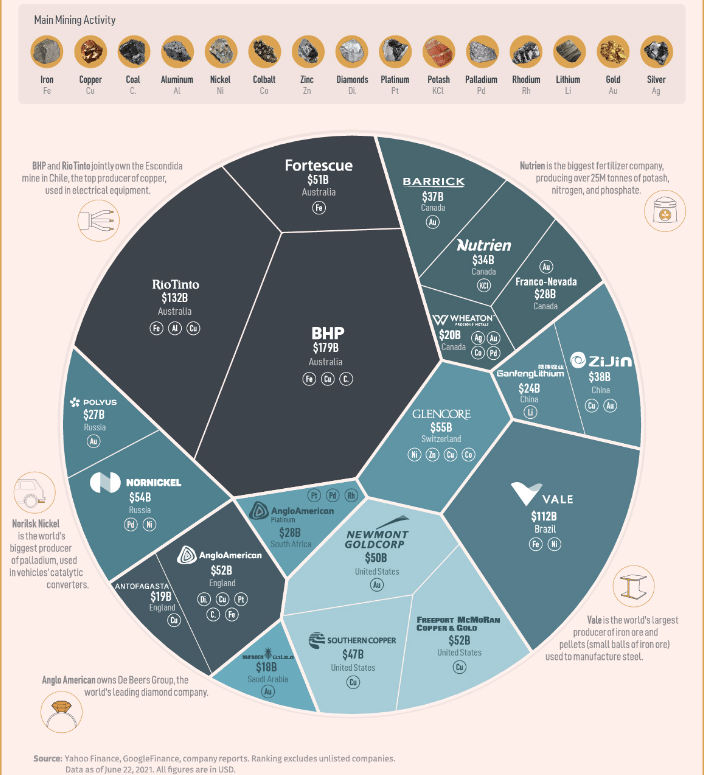Fortune follows the Brave
This week, stock market participants wondered if there would be a booster shot for stocks. Shares retreated with headlines fixated on Afghanistan and stressed evacuation efforts. In life, sometimes you’re damned if you do, you’re damned if you don’t.
But that shouldn’t retract from the fact that earnings season has been very strong. What does detract from earnings is more talk from various Fed officials of tapering (read: rate hikes and less bond market support). Boston Fed President Eric Rosengren says he is open to tapering at the next Fed meeting. While his view is unlikely to prevail, such talk suggests rate hikes are coming sooner than the back half of 2023, as previously suggested. They could even happen this year.
But the stock market seems to be taking all of this hawkish Fed talk in stride, as Friday’s strong price recovery suggests.
If you brake it, you own it
Famously, Amazon has clobbered countless brick and mortar businesses, both large chains and local shops alike. Now they are planning to get into the bricks and mortar business themselves.
Details aren’t yet clear and Amazon may back out of its plans yet. But the idea is to open a sort of everything store, something akin to Wal-Mart, though what brands and items it will carry isn’t yet clear. Needless to say, such stores would feature a whole lot of Amazon’s own branded products.
Sheesh!
According to the Canadian Labour Market Information Council, jobs for high-earning Canadians are back to their pre-pandemic highs while low paying jobs are still down double-digits. Especially hit were food services and hospitality sectors.
Specifically, they pointed out that male low-wage earners are under by 12% while women low-earners down 14%.
All of this prompted Prime Minister Trudeau to stand in front of a camera and invent a new word steeped in his beloved identity politics: “This crisis has created a she-cession and has threatened to roll back the hard-fought social and economic progress of all women,” Trudeau said in a media statement. “To build a fairer and more equal Canada, we must ensure a feminist, intersectional recovery from this crisis.”
We mentioned this to our 86-year-old high school English teacher last night over an outdoor dinner. “Did he really say that,” he asked, rolling his eyes. “That’s not even a word.”

Musing Beyond the Markets
Arguably, the most successful environmental protection in U.S. history occurred with the passing of the Clean Air Act of 1970 (which had origins in an act of the same name passed by congress in 1963).
The 1970 changes required the EPA, a newly formed government agency, to determine the most dangerous air pollutants and implement standards. Carbon monoxide, ground-level ozone, particulate matters, lead, sulfur dioxide and nitrogen dioxide were all cited, regulated and curbed.
That was the Nixon administration which implemented these tough standards via the EPA, a watchdog his administrated created. And it wasn’t controversial in Washington, with 100% support in the Senate and only one representative voting against the bill.
When signing, President Richard Nixon said, "As we sign this bill in this room, we can look back and say, in the Roosevelt Room on the last day of 1970, we signed a historic piece of legislation that put us far down the road toward a goal that Theodore Roosevelt, 70 years ago, spoke eloquently about: a goal of clean air, clean water, and open spaces for the future generations of America."
Nixon wasn’t concerned about global climate change. The focus was local pollution, a far more practical and tangible goal.
In 1976, Republicans pushed to add to the act, prohibiting industrial pollution in national parks.
In the late 80s, George H. W. Bush ran a pro-environmental campaign that he won, resulting in major expansions and updates of the Clean Air Act, including regulations to reduce acid rain, urban smog and toxic chemicals. The bill would require coal-fired power plants, auto makers, and chemical manufacturers to make large investments in new equipment and processes. This time, it passed the Senate with an 89-11 vote. Senator Mitch McConnell voted in favour, calling it “a very strong bill” and adding “I had to choose between cleaner air and the status quo. I chose cleaner air.”
Environmentalists felt the measures didn’t go far enough. Industry balked, claiming it was too expensive, jobs and businesses would be lost, and there was a lack of scientific evidence.
For example, coal-fired utilities said science had not confirmed acid rain (rain water mixed with sulfur dioxide from coal-plant emissions) to be the cause of serious damage. Car makers complained that the new standards would require technology that hadn’t yet been developed, namely engines that ran on reformulated gasoline.
It took another 10 years to reduce gasoline’s lead content by 90% and another decade gasoline to be leadfree.
To modern ears, the wisdom of these political moves is obvious.





